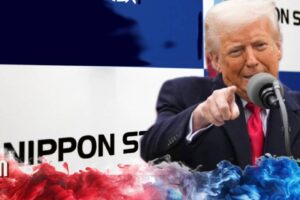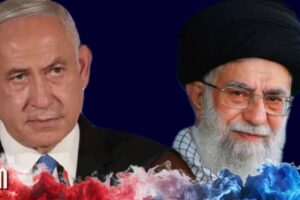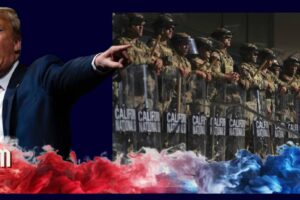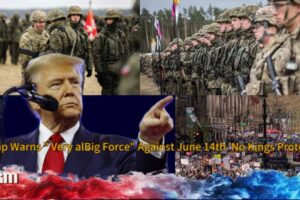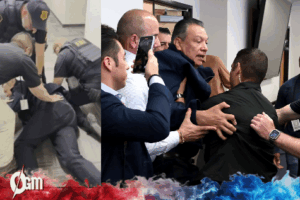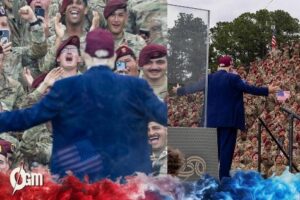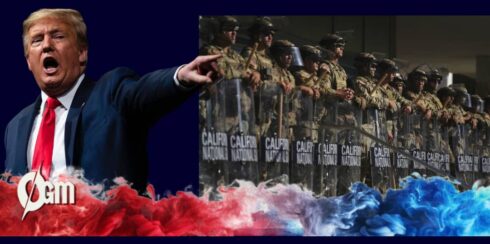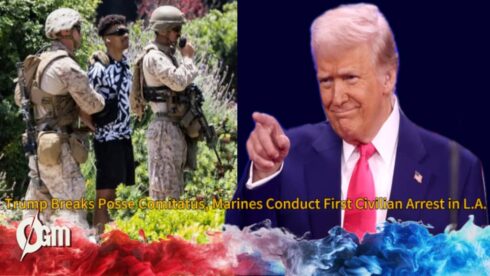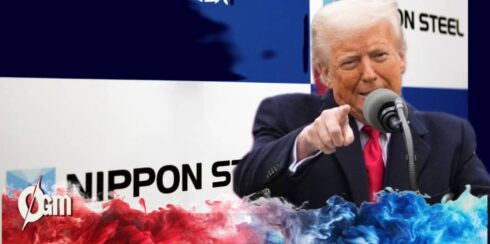In a late-night decision Thursday, the Ninth Circuit Court of Appeals granted the Trump administration a temporary stay, allowing the continued federal deployment of the California National Guard in Los Angeles. This emergency order halts a lower court’s ruling by U.S. District Judge Charles Breyer, which declared President Donald Trump’s federalization of the Guard unconstitutional and ordered the troops returned to the control of Governor Gavin Newsom.
The appeals court announced it would review the case in a full hearing on June 17. Until then, National Guard units can remain under federal command, assisting Immigration and Customs Enforcement (ICE) operations across Los Angeles. The temporary stay marks a legal victory for the Trump administration in its high-profile standoff with California’s Democratic leadership over immigration enforcement.
Judge Breyer Slams Trump’s Use of Title 10, Cites Tenth Amendment Violation
Earlier on Thursday, Judge Breyer issued a 36-page opinion sharply criticizing President Trump’s use of Title 10 authority, which permits federalization of state National Guard forces under specific conditions. Breyer concluded that the president had bypassed Governor Newsom and overstepped both statutory limits and constitutional principles.
Breyer argued that Trump’s invocation of a “rebellion” to justify the move was “unfounded,” noting that peaceful protests—even if disruptive—do not constitute the armed uprisings Title 10 envisions. “His actions were illegal — both exceeding the scope of his statutory authority and violating the Tenth Amendment,” Breyer wrote. The judge emphasized that civilian protest against federal policy is a core democratic right, not grounds for military occupation.
Newsom Declares Victory, Then Faces Setback
Shortly after Breyer’s ruling, Governor Newsom held a news briefing in San Francisco, declaring the decision a constitutional triumph. “Today is a big day for the Constitution of the United States, for our democracy,” Newsom said. “The National Guard will come back under my authority by noon tomorrow.”
However, the governor’s optimism was short-lived. Just hours later, the Ninth Circuit’s stay reversed Breyer’s order—at least temporarily—keeping the National Guard under President Trump’s command. Still, Newsom vowed to keep pushing back. “We will continue to resist this misuse of federal power,” he said following the appeals court’s decision.
OGMNews.COM
California Accuses Trump of “Monarchist” Power Grab as Court Fight Over Troop Deployment Heats Up
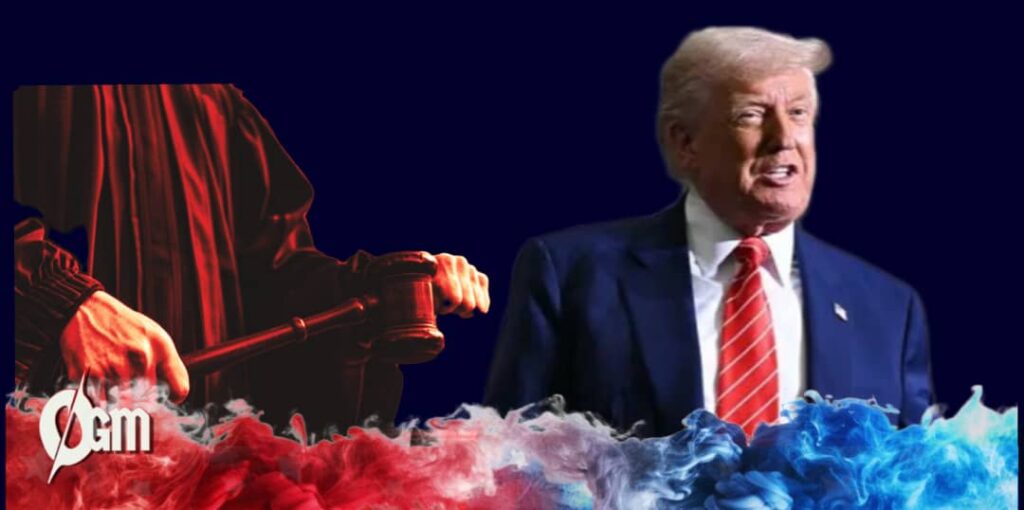
President Trump deployed more than 4,000 National Guard troops and 700 active-duty Marines to Los Angeles last week, citing widespread protests and what he described in a memorandum as a “form of rebellion.” The protests, largely peaceful, erupted in response to stepped-up federal immigration raids across the city.
The presence of military personnel in Los Angeles has led to curfews and over 400 arrests, according to the LAPD. Civil rights groups and city leaders, including Mayor Karen Bass, have raised alarms about the chilling effect of military presence on public dissent. Meanwhile, protests have spread to other cities including Austin, Boston, and New York, amplifying national scrutiny over the president’s immigration crackdown.
Legal Showdown Over Title 10’s Scope and Executive Power
At the heart of the case is the interpretation of Title 10 of the U.S. Code, which allows the president to call the National Guard into federal service under three narrow conditions: invasion, rebellion, or the inability to enforce federal law. The Trump administration argued it was operating within its rights to quell what it termed “lawless violence.”
Judge Breyer, however, expressed deep skepticism. “It’s not that a leader can simply say something and it becomes it,” he told government attorneys during Thursday’s hearing. “How is that any different than what a monarchist does?” He added that the law requires the president to work through the state governor—something Trump did not do.
California’s Lawsuit: “A Dangerous Expansion of Executive Power”
Governor Newsom, joined by Attorney General Rob Bonta, filed a lawsuit earlier in the week challenging the president’s unilateral deployment. The suit alleges that Trump’s move violates both federal statutes and constitutional protections, and seeks to restrict the role of the military to non-law-enforcement functions like guarding federal buildings.
In court filings, Newsom’s attorneys warned that the federal government’s interpretation of Title 10 represents “an expansive, dangerous conception of federal executive power.” They argued that the deployments have inflamed tensions and could irreparably harm California communities. The Trump administration fired back, labeling the lawsuit “a crass political stunt endangering American lives.”
What Comes Next: Legal and Political Implications
The Ninth Circuit’s emergency stay sets the stage for a high-stakes showdown on June 17. If the court sides with the Trump administration, it could affirm a broader interpretation of presidential authority in deploying military forces domestically—particularly in blue states challenging federal immigration enforcement.
The dispute has deepened the rift between California and the Trump White House and could redefine limits of executive power during public unrest. As both sides prepare for the next court hearing, the National Guard remains on patrol in Los Angeles, caught in the middle of a constitutional clash between state sovereignty and federal authority




